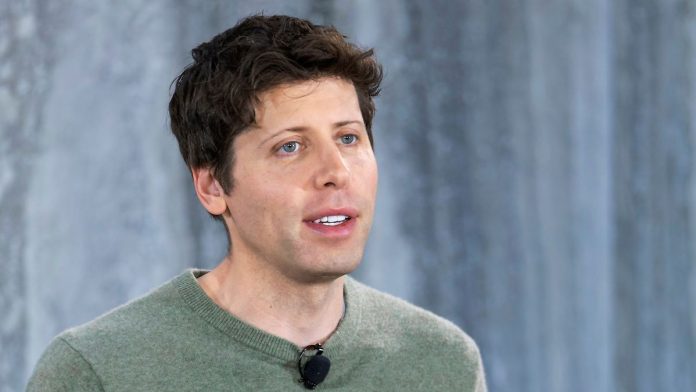“Worldcoin is now live”
OpenAI boss Altman starts his own crypto project
This audio version was artificially generated. More info | Send feedback
After the AI text program ChatGPT, OpenAI boss Sam Altman is starting a new project. With Worldcoin, users receive a digital identity via iris recognition that distinguishes them from AI bots on the Internet – and with which they receive the appropriate cryptocurrency token.
OpenAI boss Sam Altman has given the starting signal for the Worldcoin cryptocurrency project, which he co-founded. Worldcoin’s core offering consists of a digital identity (ID) that only humans can receive and not chatbots generated by artificial intelligence (AI), the project said. This ID should be used, among other things, to distinguish between AI bots and real people on the Internet. Additionally, customers who signed up in certain countries received Worldcoin’s WLD cryptocurrency token.
In the beta phase of the project there were two million users. With the launch, Worldcoin is expanding operations to 35 cities in 20 countries. The Microsoft holding OpenAI is the developer of the text-based chatbot ChatGPT. To obtain a so-called World ID, a customer must sign up for a personal iris scan using the Worldcoin “sphere,” a silver ball the size of a bowling ball. Once the iris scan confirms that the person in question is a real human, a World ID is created.
From the project’s perspective, such a digital identity is becoming even more important in the age of AI chatbots, which can now generate language that is increasingly human-like. The cryptocurrency aspect of World IDs is also important because cryptocurrency blockchains can store them in a way that maintains privacy, said Worldcoin co-founder Alex Blania. Furthermore, they cannot be controlled or switched off from a single point. Behind the Worldcoin project is the company Tools for Humanity, based in San Francisco and Berlin, which was founded by Blania and Altman.
Many AI experts are now calling for rapid and strict rules for “generative” artificial intelligence (AI) because the risks from disinformation campaigns, among other things, are incalculable. Among other things, they see the threatening flood of artificially created images, videos and texts as a danger to democracy. From Altman’s perspective, Worldcoin can play an important role in how the economy could be transformed by generative AI in the future. “People will be overwhelmed by AI, which will have a massive economic impact,” he said.
World ID is intended to prevent fraud
Altman referred to the idea of a Universal Basic Income (UBI). Under such a benefit program, typically run by governments, every individual would be entitled to unconditional cash transfers. As AI will “take over more and more of the work that is done by humans today,” UBI could help combat income inequality. And the World ID can take on the task of preventing fraud, since only real people have such an ID.
However, according to Altman, a world with a universal basic income is “very far in the future”. He also said he had no clear idea of which authority could distribute such cash benefits in the future. But Worldcoin is laying the foundation for such programs to become reality. Altman is certain: “We feel that we need to start experimenting with things so we can figure out what to do.”


